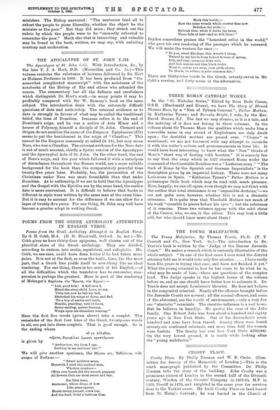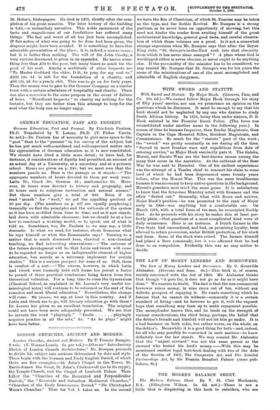CROSBY PLACE.
Crosby Place. By Philip Norman and W. D. Carte. (Com. mittee for Survey of the Memorials of London.)—This is the ninth monograph published by the Committee. Dr. Philip Norman tells the story of the building. John Crosby was a prominent citizen of London in the second half of the fifteenth century, Warden of the Grocers' Company in 1463-64, M.P. in 1466, Sheriff in 1470, and knighted in the same year for services done to the Yorkist cause. He built Crosby Place on land leased from St. Convent ; ho was buried in the Church of St. Helen's, Bishopsgate. He died in 1475, shortly after the com- pletion of his great mansion. The later history of the building is told,—a melancholy narrative. This noble monument of the taste and magnificence of our forefathers has suffered many things. The last and worst of all has just been accomplished. If fair notice of what was going to be done had been given, the disgrace might have been avoided. It is something to .have this admirable presentation of the place ; it is, indeed, a manes inane ; but it is better than nothing. The will of Sir Jelin Crosby, a very curious document, is given in an appendix. He leaves some- thing less than 450 to the poor, but many times as much for the good of his soul. Among a multitude of other bequests are "To Master Goddard the elder, D.D., to pray for my soul cs." 4266 13s. 4d. is left for the foundation of a chantry, and 466 13s. 4d. for a yearly obit. This was to go on for forty years. Then the money was to pass to the Grocers' Company on a similar trust with a certain admixture of hospitality and charity. There was also a reversion to the same purpose in the event of failure of heirs. "Munificent bequests" to charity say nothing for the testator, but they are better than this attempt to keep for the soul what the body can no longer enjoy.

























































 Previous page
Previous page